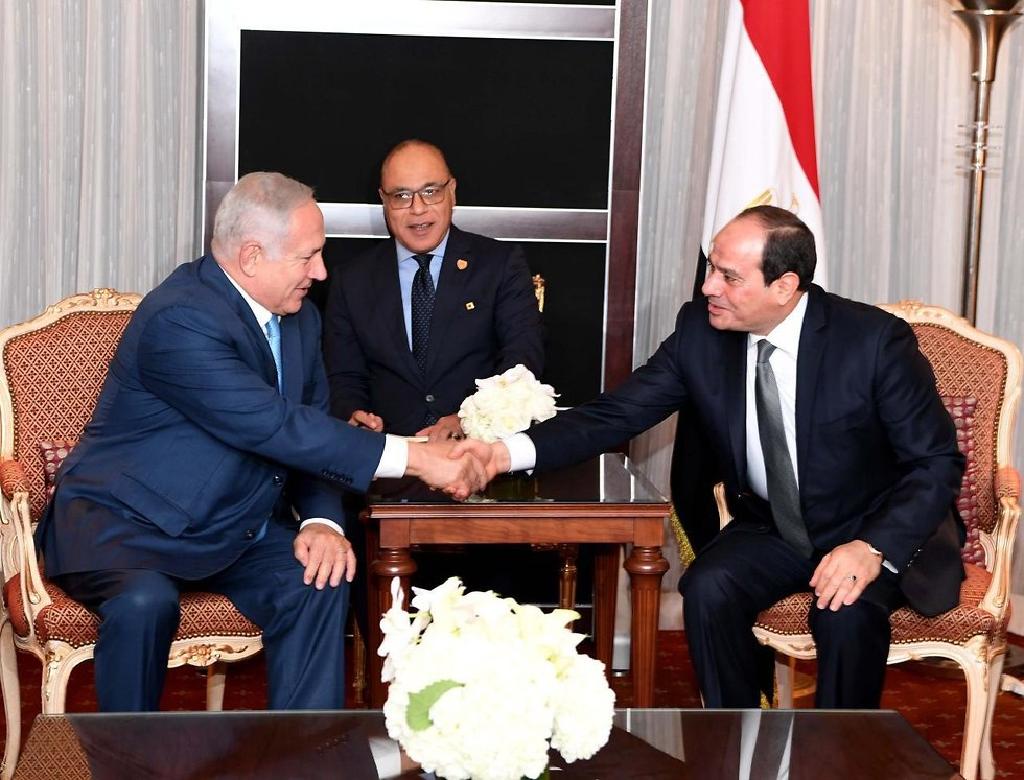Getting your Trinity Audio player ready...
Egypt's President Abdel Fattah al-Sisi said Wednesday the UAE-Israel normalization accord represents a step towards regional peace by preserving Palestinian rights and Israeli security.
The United Arab Emirates and Israel have agreed to normalize ties in a watershed U.S.-brokered deal under which the Jewish state has suspended annexation plans.
2 View gallery


Prime Minister Benjamin Netanyahu and Egyptian President Abdel Fattah al-Sisi during a 2018 meeting in New York City
(Photo: GPO)
Palestinians, however, have condemned it as a "betrayal" of their cause.
In a phone call with Prime Minister Benjamin Netanyahu, Sisi voiced his support for "any steps that would bring peace" to the volatile Middle East.
He welcomed measures that "preserve the legitimate rights of the Palestinian people, allow for the establishment of their independent state and provide security for Israel".
The UAE-Israeli agreement announced on August 13 was a "step in that direction", he said.
2 View gallery


Palestinians in Nablus protesting against the normilization agreement between Israel and the UAE
(Photo: Reuters)
Sisi warned against any unilateral decisions that "would undermine the chances for peace" and called for talks between the Israelis and Palestinians.
The UAE became the third Arab country to agree to normalize ties with Israel, after Egypt signed a peace deal in 1979 and Jordan followed suit in 1994.
Arab leaders support a two-state solution to resolve the decades-old Palestinian-Israeli conflict.
They back Palestinian demands for a state based on borders before the 1967 Six-Day War when Israel seized the West Bank and Gaza, with East Jerusalem as its capital.

